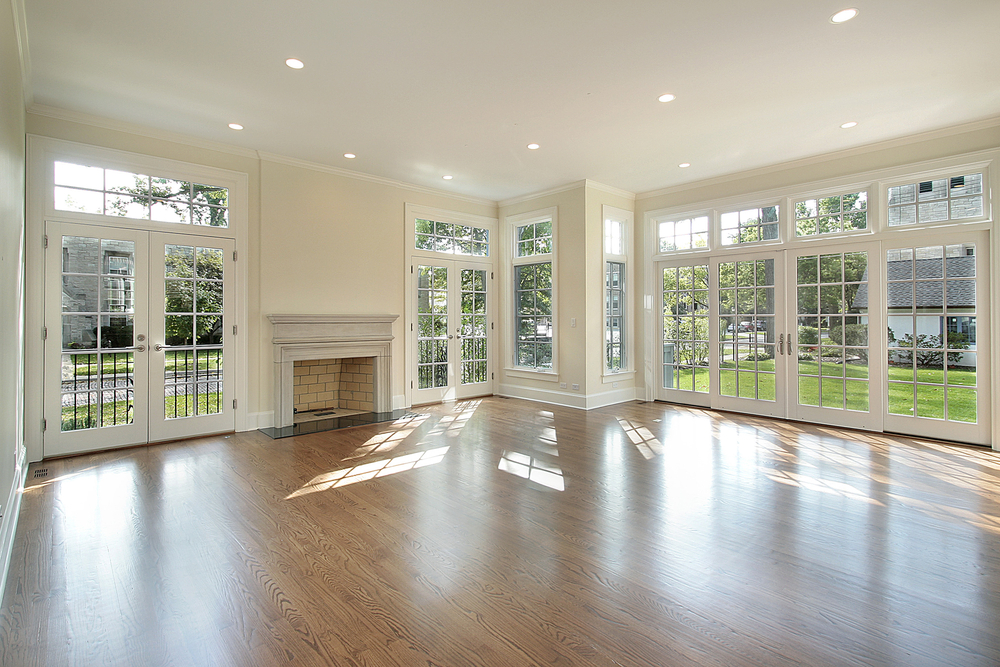Choosing the Right Hardwood Floors for Your Home

Choosing hardwood flooring for your home is a significant decision that can enhance its aesthetics and value. With a variety of options available, from different wood species to various finishes and installation methods, navigating through the choices can seem daunting. However, understanding your preferences, lifestyle, and practical considerations can simplify the process and ensure you select the perfect hardwood floors for your space.
Hardwood Flooring Types
Solid Hardwood vs. Engineered Hardwood
Solid hardwood consists of planks milled from a single piece of timber, offering a classic, authentic look. It can be sanded and refinished multiple times, making it durable and long-lasting. Engineered hardwood, on the other hand, is constructed from multiple layers of wood pressed together, topped with a hardwood veneer. This type is more resistant to moisture and temperature changes, suitable for areas where solid hardwood might not be ideal, such as basements.
Wood Species
The choice of wood species significantly impacts the appearance and characteristics of your hardwood floors. Oak, maple, and cherry are popular options known for their durability and distinct grain patterns. Exotic woods like Brazilian cherry or mahogany offer unique aesthetics but can be more expensive. Consider the hardness, color variation, and grain pattern of each species to match your desired look and maintenance preferences.
Factors Influencing Your Decision
Lifestyle and Traffic
Evaluate the lifestyle of your household and the traffic patterns in the areas where hardwood will be installed. High-traffic areas like hallways and living rooms require durable hardwood with a higher hardness rating to withstand wear and tear. For households with pets and children, consider scratch-resistant finishes and lighter wood tones to camouflage imperfections.
Maintenance Requirements
Different finishes and wood species have varying maintenance needs. Some finishes are more resistant to scratches and stains, requiring less frequent refinishing. Lighter wood species like maple or birch tend to show scratches less prominently than darker woods like walnut or cherry. Factor in the maintenance demands of each option to ensure your hardwood floors remain in pristine condition for years to come.
Choosing the Right Finish
Types of Finishes
Hardwood floors can be finished with oil-based polyurethane, water-based polyurethane, or natural oil. Oil-based polyurethane provides a durable, glossy finish that enhances the natural grain of the wood but requires longer drying times between coats. Water-based polyurethane dries faster and emits fewer odors during application, making it a more convenient choice for busy households. Natural oil finishes penetrate the wood to provide a matte appearance while requiring regular maintenance to preserve the finish.
Matte vs. Glossy Finishes
The finish you choose affects the overall look and feel of your hardwood floors. Matte finishes conceal scratches and dirt better than glossy finishes, making them ideal for high-traffic areas. Glossy finishes, however, provide a more traditional and elegant appearance, reflecting light to create a brighter ambiance in your home. Consider the aesthetic preferences and practical considerations of each finish type before making your final decision.
Installation Considerations
Subfloor and Location
The type of subfloor and the location where hardwood will be installed influence the installation method and compatibility of different hardwood types. Solid hardwood requires a stable subfloor to prevent warping or buckling over time. Engineered hardwood, with its increased stability, can be installed over concrete slabs or in areas prone to moisture fluctuations, such as basements or kitchens.
DIY vs. Professional Installation
While DIY installation may seem cost-effective, professional installation ensures proper subfloor preparation, acclimation of wood planks, and precise installation techniques. Professionals can also recommend the best installation method based on your subfloor type and the desired hardwood flooring, ensuring a seamless and long-lasting result.
Environmental Considerations
Sustainability
Choose hardwood flooring sourced from sustainably managed forests certified by organizations like the Forest Stewardship Council (FSC) or the Sustainable Forestry Initiative (SFI). Sustainable wood harvesting practices help preserve natural habitats and ensure the long-term availability of wood resources for future generations.
Indoor Air Quality
Opt for hardwood flooring with low VOC (Volatile Organic Compound) emissions to improve indoor air quality and reduce harmful chemicals released into your home environment. Water-based finishes and natural oil finishes emit fewer VOCs than oil-based polyurethane, making them eco-friendly choices for environmentally conscious homeowners.
Budget and Long-Term Investment
Initial Costs vs. Long-Term Value
Hardwood flooring is an investment that enhances the value of your home and can last for decades with proper maintenance. While initial costs may be higher compared to other flooring options, hardwood floors offer timeless appeal and durability that increase the resale value of your property. Consider your budget, long-term maintenance costs, and the value hardwood floors add to your home when making your purchasing decision.
Comparing Costs
Compare the costs of different wood species, finishes, and installation methods to find a hardwood flooring option that fits within your budget. Factor in additional costs such as subfloor preparation, furniture removal, and disposal of old flooring materials when estimating the total cost of your hardwood floor installation project.
Conclusion
Choosing the right hardwood floors for your home involves considering various factors such as wood species, finishes, maintenance requirements, and installation methods. By understanding your preferences, lifestyle, and budget constraints, you can make an informed decision that enhances the beauty and value of your home for years to come. Whether you opt for the classic elegance of solid hardwood or the versatility of engineered hardwood, investing in quality hardwood floors ensures a timeless addition to your living space.

